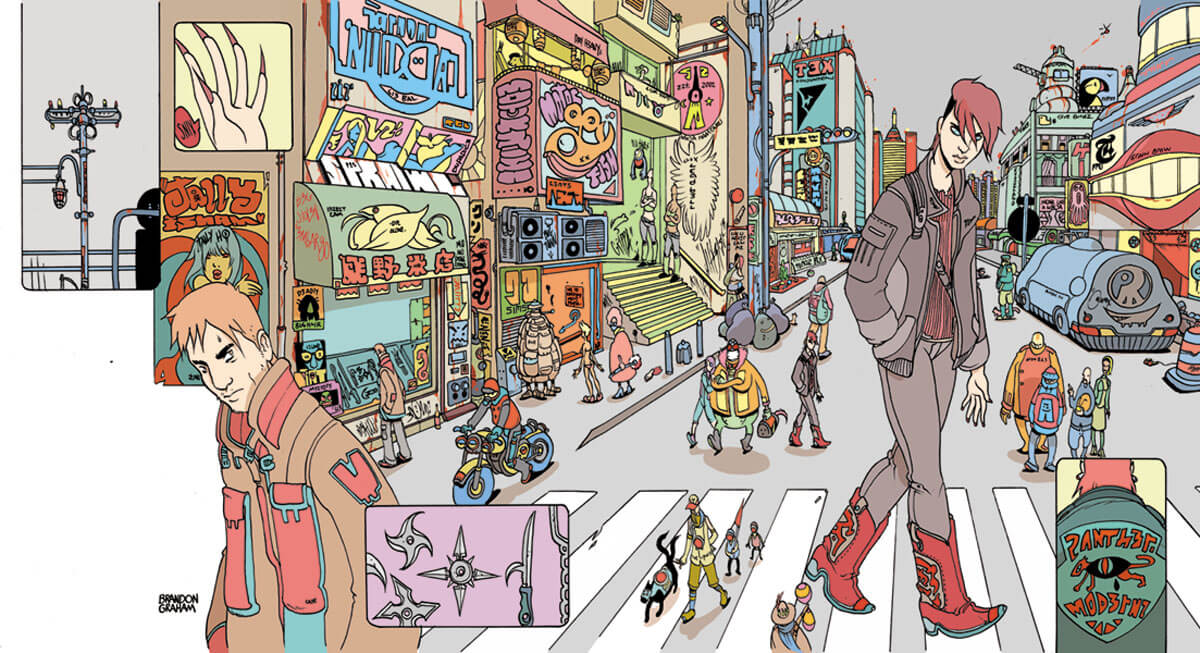Video games and literature have long shared a symbiotic relationship. Many of the most celebrated games owe their immersive worlds, intricate narratives, and philosophical undertones to books that came before them. Whether it’s the neon-lit streets of cyberpunk dystopias, the sweeping landscapes of fantasy realms, or the oppressive atmospheres of post-apocalyptic futures, literature has been a major driving force behind some of gaming’s most outstanding achievements.
Game developers continuously seek inspiration from novels, crafting digital experiences that pay homage to these literary masterpieces. Just as a game testing company ensures the technical excellence of a game, these books have provided the creative foundation for unforgettable gaming experiences. Explore some of the most influential books that shaped iconic video games.
Cyberpunk: The Neon-Drenched Future of Gaming
The cyberpunk genre, defined by its high-tech and low-life themes, has birthed some of history’s most visually stunning and narratively rich games. Here are a few books that laid the groundwork for this genre in gaming:
Neuromancer by William Gibson
Considered the bible of cyberpunk, Neuromancer introduced many concepts that have become staples in cyberpunk games. The novel’s vision of cyberspace, artificial intelligence, and hacker culture directly influenced Cyberpunk 2077, Deus Ex, and System Shock. Gibson’s gritty world of corporate control and cybernetic enhancements set the tone for how cyberpunk should look and feel in video games.
Do Androids Dream of Electric Sheep? by Philip K. Dick
This novel, which inspired the Blade Runner films, also significantly impacted cyberpunk gaming. The themes of identity, humanity, and artificial intelligence are deeply embedded in titles like Detroit: Become Human and Observer. The ethical dilemmas surrounding AI and androids in these games mirror those explored in Dick’s novel.
Snow Crash by Neal Stephenson
Stephenson’s Snow Crash took the concept of a virtual world to new heights, paving the way for games like Second Life and The Matrix Online. The book’s depiction of a digital metaverse foreshadowed modern virtual reality gaming and online communities, influencing how developers envision expansive virtual spaces.
Fantasy: The Foundation of RPG Epics
Fantasy literature has inspired some of the most beloved role-playing games (RPGs), creating worlds filled with magic, mythical creatures, and grand adventures. Here are some essential fantasy books that influenced gaming:
The Lord of the Rings by J.R.R. Tolkien
Tolkien’s Middle-earth is the blueprint for nearly all fantasy RPGs. Games like The Elder Scrolls V: Skyrim, Dragon Age, and The Witcher series borrow heavily from Tolkien’s profound lore, rich world-building, and epic quests. Even World of Warcraft and Dungeons & Dragons owe much to the framework he established.
The Witcher Series by Andrzej Sapkowski
While Tolkien provided the foundation for fantasy, Sapkowski’s The Witcher series gave it a darker, morally complex twist. CD Projekt Red adapted the books into The Witcher game series, which became one of the most acclaimed RPG franchises. Geralt of Rivia’s adventures bring Sapkowski’s gritty storytelling, political intrigue, and Slavic mythology to life.
A Song of Ice and Fire by George R.R. Martin
Martin’s series, which inspired HBO’s Game of Thrones, also left its mark on gaming. The brutal, politically charged world of A Song of Ice and Fire influenced titles like Dark Souls, Kingdom Come: Deliverance, and Crusader Kings II, where intrigue, strategic choices, and unexpected betrayals define gameplay.
Dystopia: A Glimpse into Dark Futures
Dystopian literature has long warned about the dangers of unchecked power, surveillance, and societal collapse. Many games explore these same themes, creating thought-provoking experiences that challenge players.
1984 by George Orwell
Orwell’s 1984 is the definitive dystopian novel. Its themes of government surveillance, thought control, and resistance are present in games like Half-Life 2, BioShock Infinite, and Papers, Please. The oppressive regimes in these games reflect the totalitarian world Orwell envisioned.
Brave New World by Aldous Huxley
Huxley’s vision of a world controlled by pleasure and conformity influenced games like We Happy Few and Deus Ex. These games explore themes of societal conditioning, personal freedom, and the illusion of happiness, much like Huxley’s novel.
The Road by Cormac McCarthy
McCarthy’s harrowing post-apocalyptic novel inspired the emotional depth and bleak atmosphere of The Last of Us. The father-son dynamic, the struggle for survival, and the exploration of what it means to remain human in a dying world are central to the book and the game.
The Everlasting Bond Between Books and Games
From the cyberpunk landscapes of Neuromancer to the medieval fantasy of The Lord of the Rings, literature continues to shape the gaming industry. These books have provided the foundation for some of the most beloved and critically acclaimed games, proving that great storytelling transcends mediums.
As game worlds become richer and narratives grow more intricate, it’s clear that literature will always be a source of inspiration. Whether you’re a gamer looking to explore the literary roots of your favorite games or a reader searching for interactive adaptations of beloved books, the connection between books and games offers endless adventures.
Markus lives in San Francisco, California and is the video game and audio expert on Good e-Reader! He has a huge interest in new e-readers and tablets, and gaming.

